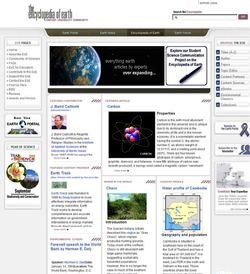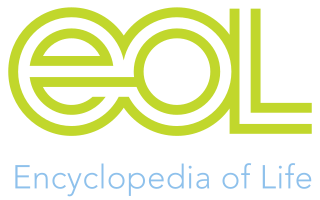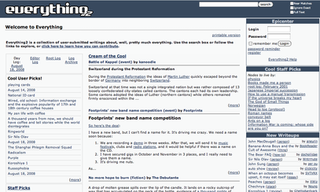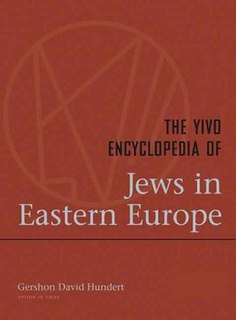 W
WThe Catholic Encyclopedia: An International Work of Reference on the Constitution, Doctrine, Discipline, and History of the Catholic Church is an English-language encyclopedia published in the United States and designed to serve the Roman Catholic Church. The first volume appeared in March 1907 and the last three volumes appeared in 1912, followed by a master index volume in 1914 and later supplementary volumes. It was designed "to give its readers full and authoritative information on the entire cycle of Catholic interests, action and doctrine".
 W
WThe Encyclopedia of Chicago is a historical reference work covering Chicago and the entire Chicago metropolitan area published by the University of Chicago Press. Released in October 2004, the work is the result of a ten-year collaboration between the Newberry Library and the Chicago Historical Society. It exists in both a hardcover print edition and an online format, known as the Electronic Encyclopedia of Chicago. The print edition is 1117 pages and includes 1400 entries, 2000 biographical sketches, 250 significant business enterprise descriptions, and hundreds of maps. Initially, the internet edition included 1766 entries, 1000 more images and sources.
 W
WChristian Cyclopedia is a one-volume compendium of theological data, ranging from ancient figures to contemporary events. It is published by Concordia Publishing House as an update to the Concordia Cyclopedia of 1927, authored by Ludwig Fuerbringer. The 1927 version was an update to The Lutheran Cyclopedia, edited by Henry Eyster Jacobs and Charles A. W. Haas, of the General Council and its Lutheran Theological Seminary at Philadelphia. Because the shift from the 1898 to 1927 versions occurred between different denominations of Lutherans, the point of view for certain articles shifted accordingly. However, other articles have barely changed at all between even the 1898 and 2000 Cyclopedias.
 W
WEmojipedia is an emoji reference website which documents the meaning and common usage of emoji characters in the Unicode Standard. Emojipedia also publishes articles and provides tools for tracking new emoji characters, design changes and usage trends.
 W
WMicrosoft Encarta was a digital multimedia encyclopedia published by Microsoft Corporation from 1993 to 2009. Originally sold on CD-ROM or DVD, it was also available on the World Wide Web via an annual subscription, although later articles could also be viewed free online with advertisements. By 2008, the complete English version, Encarta Premium, consisted of more than 62,000 articles, numerous photos and illustrations, music clips, videos, interactive content, timelines, maps, atlases and homework tools.
 W
WThe Encyclopedia of Earth is an electronic reference about the Earth, its natural environments, and their interaction with society. The Encyclopedia is described as a free, fully searchable collection of articles written by scholars, professionals, educators, and other approved experts, who collaborate and review each other's work. The articles are written in non-technical language and are intended to be useful to students, educators, scholars, and professionals, as well as to the general public. The authors, editors, and even copy editors are attributed on the articles with links to biographical pages on those individuals.
 W
WThe Encyclopedia of Life (EOL) is a free, online collaborative encyclopedia intended to document all of the 1.9 million living species known to science. It is compiled from existing databases and from contributions by experts and non-experts throughout the world. It aims to build one "infinitely expandable" page for each species, including video, sound, images, graphics, as well as text. In addition, the Encyclopedia incorporates content from the Biodiversity Heritage Library, which digitizes millions of pages of printed literature from the world's major natural history libraries. The project was initially backed by a US$50 million funding commitment, led by the MacArthur Foundation and the Sloan Foundation, who provided US$20 million and US$5 million, respectively. The additional US$25 million came from five cornerstone institutions—the Field Museum, Harvard University, the Marine Biological Laboratory, the Missouri Botanical Garden, and the Smithsonian Institution. The project was initially led by Jim Edwards and the development team by David Patterson. Today, participating institutions and individual donors continue to support EOL through financial contributions.
 W
WeLS is a reference work that covers the life sciences; it is published by Wiley-Blackwell.
 W
WEverything2 is a collaborative Web-based community consisting of a database of interlinked user-submitted written material. E2 is moderated for quality, but has no formal policy on subject matter. Writing on E2 covers a wide range of topics and genres, including encyclopedic articles, diary entries, poetry, humor, and fiction.
 W
WThe Free Dictionary is an American online dictionary and encyclopedia that gathers information from a variety of sources.
 W
WFringePedia is a wiki-powered online encyclopedia of information regarding the American science fiction television series Fringe. Launched on July 23, 2008 by Dennis Acevedo, the site uses MediaWiki software to maintain a user-created database of information. It is the largest, fan-generated, online encyclopedia for Fringe, and is intended to be the most comprehensive source data about the show. The site is not affiliated with Warner Bros. Entertainment, Bad Robot Productions, FB2 Films Inc., DC Comics/Wildstorm, or any other persons or organizations responsible for the production, promotion or distribution of Fringe.
 W
WThe Global Anabaptist Mennonite Encyclopedia Online (GAMEO) is an online encyclopedia of topics relating to Mennonites and Anabaptism. The mission of the project is to provide free, reliable, English-language information on Anabaptist-related topics.
 W
WGrolier was one of the largest American publishers of general encyclopedias, including The Book of Knowledge (1910), The New Book of Knowledge (1966), The New Book of Popular Science (1972), Encyclopedia Americana (1945), Academic American Encyclopedia (1980), and numerous incarnations of a CD-ROM encyclopedia (1986–2003).
 W
WThe Handbook of Texas is a comprehensive encyclopedia of Texas geography, history, and historical persons published by the Texas State Historical Association (TSHA).
 W
WThe Jewish Encyclopedia: A Descriptive Record of the History, Religion, Literature, and Customs of the Jewish People from the Earliest Times to the Present Day is an English-language encyclopedia containing over 15,000 articles on the history, culture, and state of Judaism up to the early 20th century. The encyclopedia's managing editor was Isidore Singer and the editorial board was chaired by Isaac K. Funk and Frank H. Vizetelly.
 W
WThe Jewish Virtual Library is an online encyclopedia published by the American foreign policy analyst Mitchell Bard's non-profit organization American–Israeli Cooperative Enterprise (AICE). It is a website covering topics about Israel–United States relations, Jewish history, Israel, the Holocaust, antisemitism and Judaism.
 W
WKnol was a Google project that aimed to include user-written articles on a range of topics. Lower-case, the term knol, which Google defined as a "unit of knowledge", referred to an article in the project.
 W
WKnow Your Meme (KYM) is a website and video series which uses wiki software to document various Internet memes and other online phenomena, such as viral videos, image macros, catchphrases, Internet celebrities and more. It also investigates new and changing memes through research, as it commercializes on the culture. Originally produced by Rocketboom, the website was acquired in March 2011 by Cheezburger Network, which, in 2016, was acquired by Literally Media. Know Your Meme includes sections for confirmed, submitted, deadpooled, researching, and popular memes.
 W
WMNopedia: The Minnesota Encyclopedia is a free English-language encyclopedia project from the Minnesota Historical Society. Funded through a Legacy Amendment Arts and Cultural Heritage Fund grant, it is the first online encyclopedia about Minnesota, a "resource for reliable information about significant people, places, events, and things in Minnesota history". Approved by Minnesotans on November 4, 2008, planning took place in 2010, the site was built in 2011 and was online on August 15; initial funding for 2010 and 2011 was $215,000. Many of the articles produced by the encyclopedia are licensed under a Creative Commons Attribution-ShareAlike 3.0 Unported License as are some of its multimedia files.
 W
WMusicBrainz is a project which aims to create a collaborative music database that is similar to the freedb project. MusicBrainz was founded in response to the restrictions placed on the Compact Disc Database (CDDB), a database for software applications to look up audio CD information on the Internet. MusicBrainz has expanded its goals to reach beyond a CD metadata storehouse to become a structured online database for music.
 W
WThe New Georgia Encyclopedia (NGE) is a web-based encyclopedia containing over 2,000 articles about the state of Georgia. It is a program of Georgia Humanities (GH), in partnership with the University of Georgia Press, the University System of Georgia/Georgia Library Learning Online (GALILEO), and the Office of the Governor.
 W
WScholarpedia is an English-language online wiki-based encyclopedia with features commonly associated with open-access online academic journals, which aims to have quality content.
 W
WThe Stanford Encyclopedia of Philosophy (SEP) combines an online encyclopedia of philosophy with peer-reviewed publication of original papers in philosophy, freely accessible to Internet users. It is maintained by Stanford University. Each entry is written and maintained by an expert in the field, including professors from many academic institutions worldwide. Authors contributing to the encyclopedia give Stanford University the permission to publish the articles, but retain the copyright to those articles.
 W
WSupernatural Wiki, also known as SuperWiki is a wiki-powered online encyclopedia for the CW's horror television series Supernatural, associated projects and events.
 W
WUrdu Wikipedia, started in January 2004, is the Urdu language edition of Wikipedia, a free, open-content encyclopedia. As of November 2020, it has 158,090 articles, 122,265 registered users, 10,728 files, and ranks 21st in terms of depth among Wikipedias. It is also the 50th largest edition of Wikipedia by article count.
 W
WWookieepedia: The Star Wars Wiki is an online encyclopedia for information on the Star Wars universe—including information on all the films, as well as Clone Wars, The Clone Wars and its introductory film, Rebels, the Star Wars expanded universe, and any upcoming Star Wars material. It is a specialized wiki created to be an extensive encyclopedia of the Star Wars universe with some articles reaching up to 60,000 words, and is written almost entirely from an in-universe perspective. The name Wookieepedia is a portmanteau of Wookiee and encyclopedia, a pun on the name of Wikipedia. The logo, too, is a visual pun showing the incomplete second Death Star as opposed to Wikipedia's incomplete "jigsaw logo".
 W
WWowpedia is a wiki about the Warcraft fictional universe. It covers all of the Warcraft games, including the MMORPG World of Warcraft. It is both a specialized wiki built around the Warcraft universe and a collaborative space for players to develop and publish strategies for Warcraft games. It was officially announced on 25 October 2010.
 W
WThe YIVO Encyclopedia of Jews in Eastern Europe is a two-volume, English-language reference work on the history and culture of Eastern Europe Jewry in this region, prepared by the YIVO Institute for Jewish Research and published by Yale University Press in 2008.